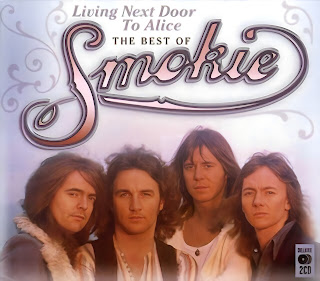Rock Island Line: One of Rock & Roll Hall of Fame 500 Songs that Shaped Rock & Roll (1955)
By: Lonnie Donegan
Released: 1955
Genre: Skiffle
"Rock Island Line" is an American folk song about the Chicago, Rock Island, and Pacific Railroad. Clarence Wilson wrote the tune in 1929 for the Rock Island Colored Booster Quartet, a singing group made up of rail line workers in Little Rock, Arkansas. The original verses described people and activities associated with the yard.
In 1934, folklorist and musicologist John A. Lomax recorded the song performed by the Arkansas Cummins State Farm prison inmates. Lead Belly accompanied Lomax. In the 1940s, he rearranged the tune and made a phonograph record. A young English singer, Lonnie Donegan, imitated Leadbelly's version. It became the precursor of and impetus for the British rock & roll invasion. As such, his cover is listed among the Rock & Roll Hall of Fame's 500 Songs That Shaped Rock & Roll.
Birth name: Huddie William Ledbetter
Born: January 23, 1888
Mooringsport, Louisiana, US.
Died: December 6, 1949 (aged 61)
New York City, US.
Genres: Folk, blues, gospel
Occupation: Musician, songwriter
Instruments: Vocals, guitar, accordion, piano, lap steel guitar
Years active: 1903–1949
"Somebody handed me a Lead Belly record.It changed my life right then and there."Bob Dylan
Huddie Ledbetter, better known as "Lead Belly," was born in Louisiana in the late 1880s. Imprisoned in Texas for murder in 1918, he won early release in 1925 by singing for the governor. In 1930 he was again detained for attempted murder. He was "discovered" in the Louisiana Angola jailhouse by folklorists John and Alan Lomax, who were collecting songs for the Library of Congress. His legacy includes the folk music scene in the US and the "Skiffle" craze of the UK. In his Nobel Prize Lecture, Bob Dylan said;
"...somebody – somebody I’d never seen before – handed me a Lead Belly record with the song 'Cotton Fields' on it. And that record changed my life right then and there. Transported me into a world, I’d never known. It was like an explosion went off. Like I’d been walking in darkness, and all of a sudden, the darkness was illuminated. It was like somebody laid hands on me. I must have played that record a hundred times."
Lead Belly was posthumously inducted into the Rock and Roll Hall of Fame in 1988 and the Louisiana Music Hall of Fame in 2008. He's best remembered for songs he recorded for Smithsonian Folkways Collection, such as "Goodnight, Irene," "The Midnight Special," "Boll Weevil," and "Rock Island Line."
Birth name: Anthony James Donegan
Aka: The King of Skiffle
Born: April 29, 1931
Bridgeton, Glasgow, Scotland
Died: November 3, 2002 (aged 71)
Market Deeping, Lincolnshire, England
Genres: Skiffle, traditional, pop, blues, folk, country
Occupation: Singer, songwriter, musician
Instruments: Guitar, vocals, banjo
"(Donegan) really was at the very cornerstoneof English blues and rock."Brian May of Queen
In 1954, Lonnie Donegan recorded a cover of "Rock Island Line." The story goes that Donegan was recording an album with Chris Barber Jazz Band when the group went out for coffee and left the tape running. Lonnie took up the microphone and sang "Rock Island Line" to accompany a passing girl playing the washboard. It was published and released as a single. Acoustic Music, a British music publication, said about Donegan's version:
"It flew up the English charts. Donegan had synthesized American Southern Blues with simple acoustic instruments: acoustic guitar, washtub bass, and washboard rhythm. The new style was called 'Skiffle' and referred to music from people with little money for instruments. The new style captivated an entire generation of post-war youth in England."
A young John Lennon's first band, The Quarrymen, was a Skiffle group. Van Morrison presented Donegan with an Ivor Novello Lifetime Achievement Award in 1994, calling him "a man we're all in debt to. He started the ball rolling." The BBC documentary "Rock Island Line: The Song That Made Britain Rock" covers this period of British music.








Comments
Post a Comment